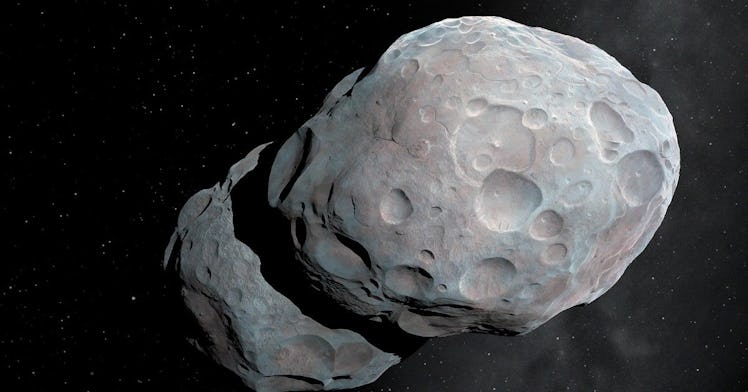Do Look Up! A Real Life, Enormous Asteroid is Hurtling Towards Earth This Week
This will be the closest an asteroid has gotten to our planet in almost a century.

An asteroid that is twice the size of the Empire State Building will be passing by Earth next week and it will be the closest an asteroid has come to our planet in almost a century.
On January 18, the 3,280-foot asteroid (nicknamed 7482) will come within 1,231,184 miles of Earth, according to NASA’s Jet Propulsion Laboratory. To put that into perspective, the Moon is 238,900 miles away from us, so saying this asteroid will be close to us is pretty relative. But it is the closest an asteroid has gotten to our planet since January 17, 1933, when an asteroid came within 700,000 miles of Earth.
According to NASA, this asteroid will pass by Earth again in July but will not get as close this time. It will be almost a century before it gets this close, as it is believed the asteroid will be about 1,445,804 miles from us in 2105.
The asteroid was originally discovered in August 1994 and it has been classified as an Apollo asteroid, meaning its orbit crosses with the Earth’s orbit. NASA deemed the asteroid “potentially dangerous” because of its “potential to make threatening close approaches to the Earth.”
But for now, it is expected to remain over a million miles away, so the actual potential of that danger remains minimal for the time being.
But is the possibility of a massive asteroid coming to Earth realistic? It’s not impossible, but there is no clear threat at this time. Nancy Chabot, the chief planetary scientist at Johns Hopkins University’s Applied Physics Laboratory, has explained that there are about 25,000 asteroids that could be quantified as near-Earth and are big enough to be “devastating” if they ever reach us.
“We’re actually not talking, like, global extinction event, but regional devastation on the area that could wipe out a city or even a small state,” Chabot said. “And so it is a real concern. It is a real threat.”